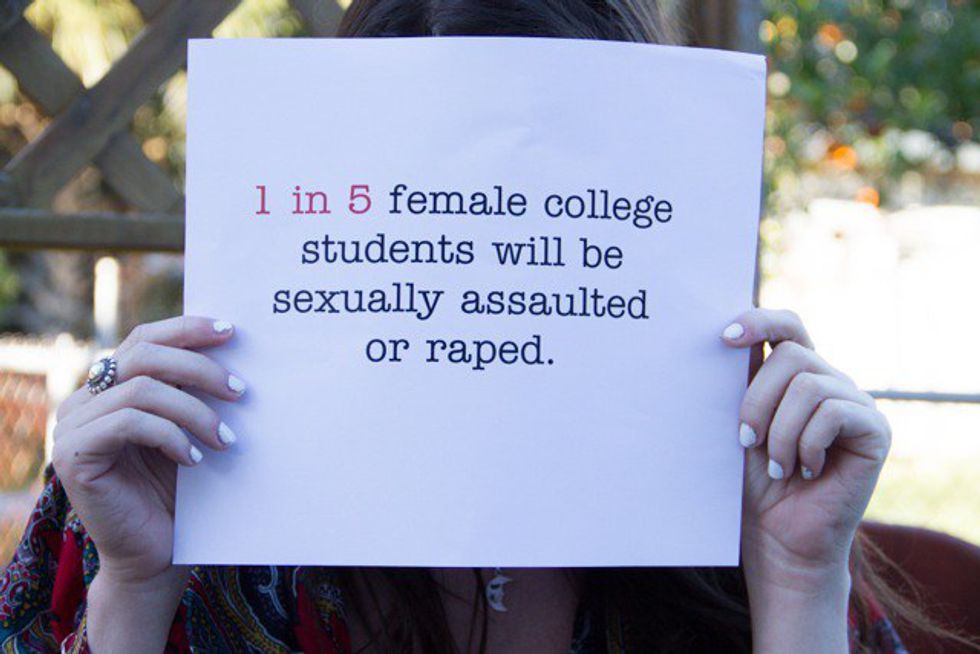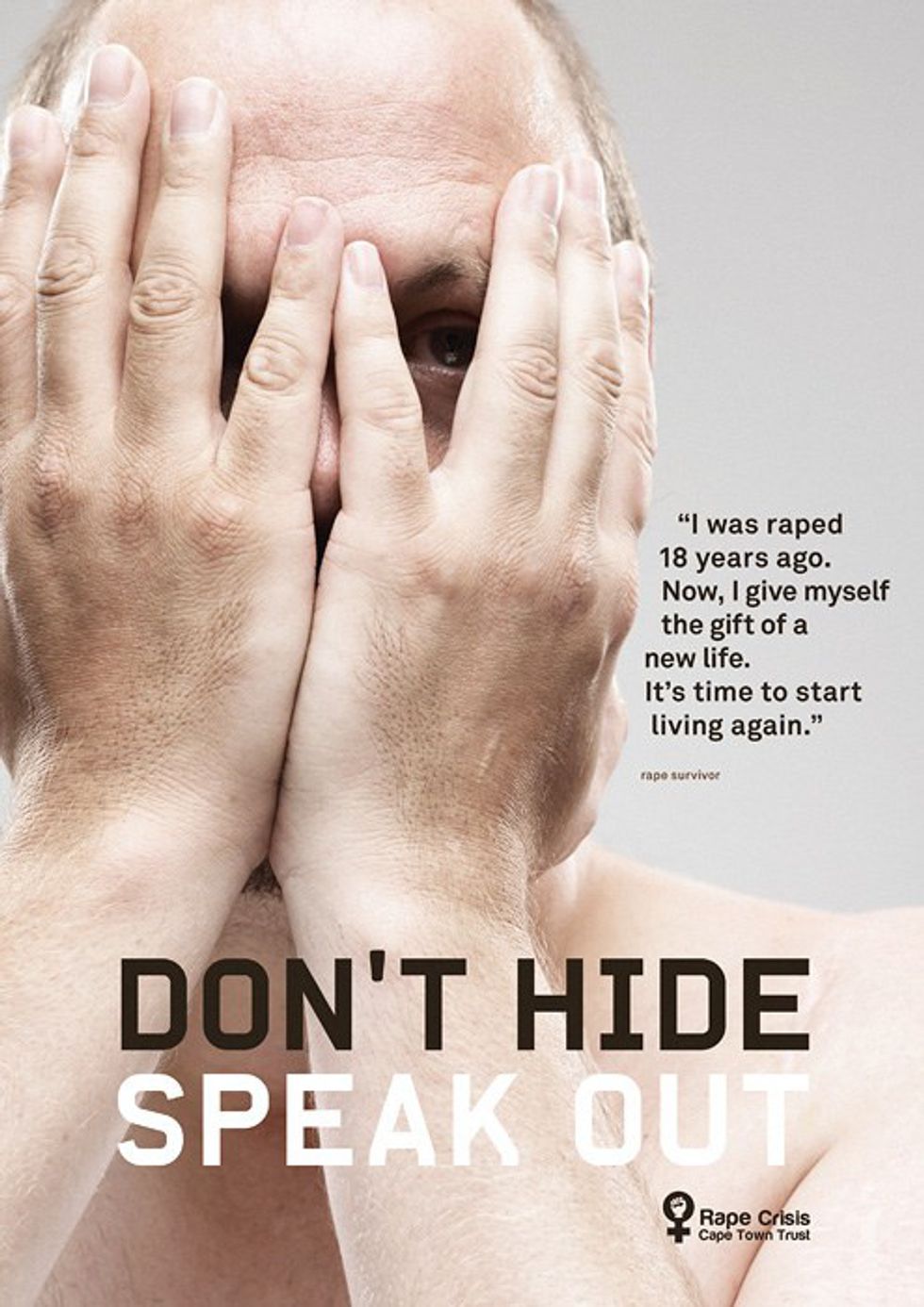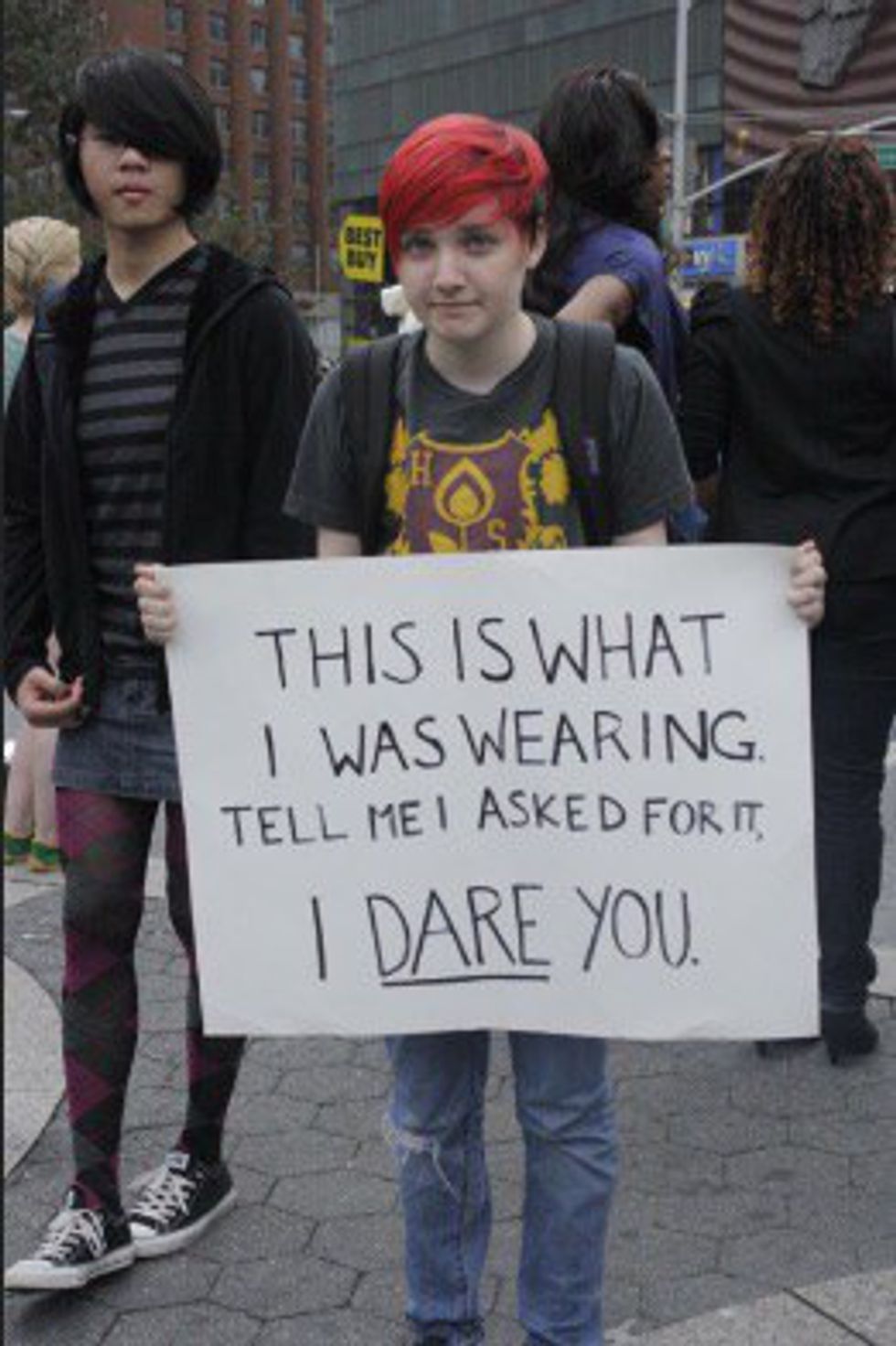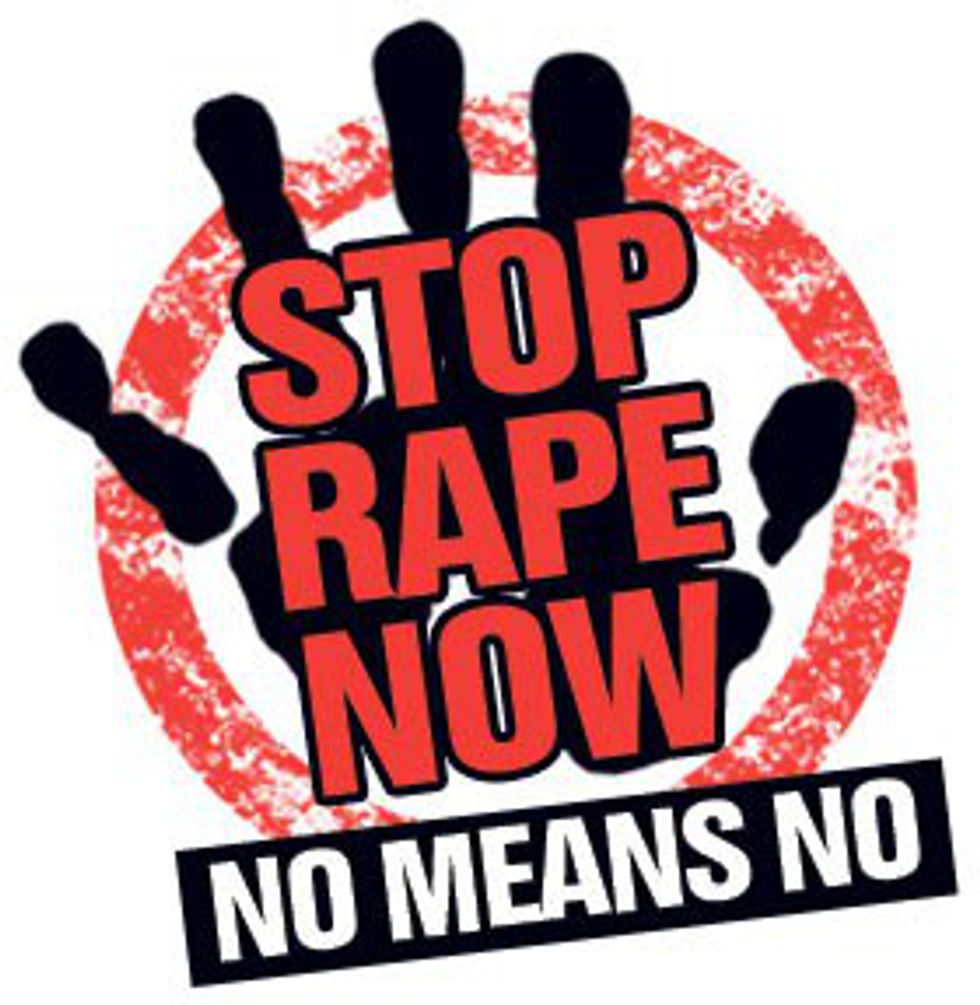Rape. Not just rape, but sexual assault and rape on U.S. college campuses. It's happening every day, on every campus. Almost every person you meet, including possibly yourself, knows someone who has been a victim of sexual assault or rape on a campus. One in every five college students, or 24 percent, has been raped while on their college campus. 13 percent of students admit to thinking about committing rape and have gone through with it while on campus. These numbers are growing every day, yet still only 5 percent of people have reported their rape. 24 percent are victims and only 5 percent are speaking up. These numbers need to change. College is not supposed to be somewhere where we have to fear getting raped. It's up to us as students to start making the difference. The first step is informing others of the issue. Second is to speak out. Third, and most importantly is stop victim blaming for good. With the completion of these few steps, I do believe we can make a difference among college campuses for the better.
Sexual assault and rape are real problems, but it is hidden from public view. Many people are unaware of how severe this problem really is among many college campuses. Learn the facts. An average of 24 percent of all college students will be raped. College rapes cause on average of 32,000 pregnancies each year. About 40 percent of all rape victims catch STIs from their rapist. College campus rape victims are 13 percent more likely to commit suicide compared to those who haven't been raped. This is a real problem and the numbers are there to prove it. Now that you know, it's time to speak up.
Speaking up is an extremely important step in helping solve this problem. Due to only a mere 5 percent of victims speaking out we need to help them. There are multiple reasons why victims refuse to speak out, such as embarrassment, feeling ashamed, blaming themselves, threats from the rapist and even pure fear. Sexual assault and rape are the most unreported crimes on college campuses. The best way to help prevent future rapes is to report one that has happened. If you, or someone you know, have been raped, I recommend reaching out. For yourself, if you are a victim you can help save other innocent people from experiencing the same thing. If you know someone who is a victim and has told you but not reported speak out to them. Tell them the benefits of speaking up rather than keeping it a secret. The more people who speak up, the more outsiders will be aware that the problem exists. At first it won't be easy, but gradually as more people become aware it will get easier for victims to speak up without fear or embarrassment. No one deserves to be sexually assaulted or raped while on a college campus.
Victim blaming is the number one reason victims refuse to speak out and report their rape. What is victim blaming? For those who aren't sure, victim blaming is when a victim of rape reports their rape and in-turn gets blamed for the act. Whether he or she was drunk and gets blamed for being drunk, or maybe she was wearing a revealing outfit so that means it was her fault, that she was asking to get raped. These are just two of the most used excuses of victim blaming which needs to stop. No one, I repeat, no one asks to get raped. Once people can stop victim blaming, the number of reported rapes will increase. Never blame the victim.
On December 17, 2015, an average of 24 percent of college students have been raped or will be this year. Only 5 percent of these people have spoken up about their incident. These numbers need to change. I hope to have opened your eyes to the problem; to make you aware that there is a real problem on college campuses. It isn't a small issue either, causing thousands of pregnancies and spreading hundreds of STIs each year which could have potentially been prevented. For those who think the victims are silly for not speaking out, I hope you know now it's because they mostly fear being blamed for the act. If we can spread awareness and stop victim blaming, I do have hope that college campuses will become a safer environment for men and women alike.























